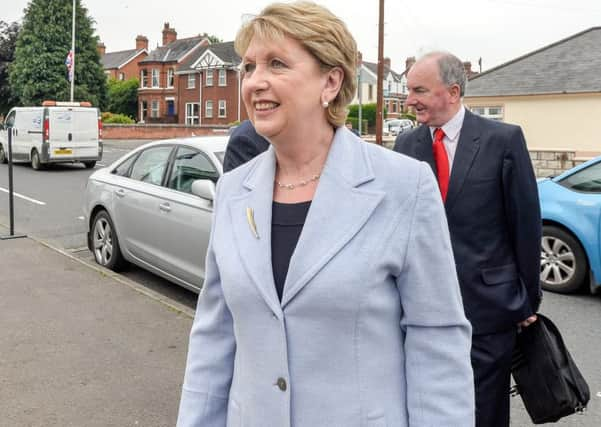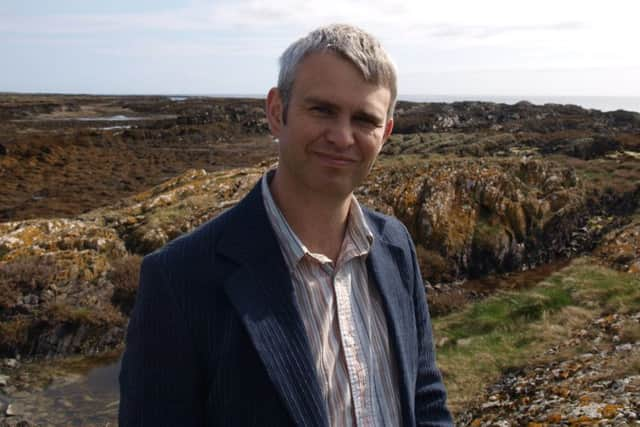McAleese remarks betray her soft nationalist view of history


It’s often tempting to look to the past to confirm suspicions or beliefs that we hold dear.
To a large extent, this is what commemoration is supposed to do – that is, to confirm what we think about ourselves in the present by highlighting events and values from the past.
This form of history adds lustre to our own self-image.


Advertisement
Hide AdAdvertisement
Hide AdBut it also tends to use memory as a verb – as the literary critic Edna Longley once pointed out, it is a form of ‘remembering at’.
Remembering with others requires more nuance and more attention to context and fact, which is why Mary McAleese’s recent intervention is troubling.
For someone who dedicated her presidency to the cause of reconciliation through remembering with, it was a shabby misstep.
McAleese, for example, cited the example of the then Irish Minister for External Affairs, Patrick Hillery visiting Derry in August 1969 to warn that the city was a ‘powder keg’.


Advertisement
Hide AdAdvertisement
Hide AdIf the British government had have listened to Hillery and Dublin a bit more, goes her reasoning, then perhaps some of the worst of the Troubles could’ve been avoided.
This type of counter-factual history says more about McAleese’s soft nationalist ideology than it does about anything else.
It ought only to be taken seriously because it reveals a kind of wilful blindness on the part of nationalists about the Troubles that is deleterious to efforts to reach some kind of proportionate, balanced and evidence-based understanding of the past that may facilitate moving forward to the future.
For example, Hillery also urged his colleagues in government to “avoid action leading to complete direct rule from Westminster which would make the North a closer integral part of the United Kingdom – unless of course Stormont should ultimately reject genuine reform”.
Advertisement
Hide AdAdvertisement
Hide AdMcAleese ignores this irredentist Hilllery – and her reported comments also ignore the civil rights movement and the efforts by Terence O’Neill to reform the Northern state.
More damagingly to her reputation, of course, she also ignores the role of the Irish government in facilitating the emergence of the Provisional IRA.
The tendency of nationalists to forget this history, which has been explored by a number of historians in recent books, is worrying.
That recorded, archival, evidence-based history suggests that what Dublin would have been able to contribute was little beyond the notion that unionists were misguided Irish people.
Advertisement
Hide AdAdvertisement
Hide AdDublin actively colluded in fostering that idea because people like Hillery and the Taoiseach Jack Lynch believed it.
Of course, some of their colleagues like Kevin Boland and Charles Haughey went further.
But that basic, nationalist understanding of Irish history seemingly persists and isn’t far beneath the surface of those men’s successors ideas – as McAleese’s speech reveals.
It’s not too difficult to find a ‘golden nugget’ that we can use to say ‘I told you so’.
Advertisement
Hide AdAdvertisement
Hide AdHowever, until nationalists give up on that kind of ideological manipulation of the past and begin to reflect on the links between ‘constitutional’ nationalism and physical force republicanism – particularly, at the start the Troubles – then the prospects for reconciliation seem slight.
McAleese referred to the visit of the Queen to the Republic as emblematic of the modernisation of relations between the states.
The Queen has not been invited back to the upcoming commemorations in Dublin.
Sadly, McAleese’s version of ‘remembering at’ illustrates how paper thin that modernisation sometimes is.
Dr Cillian McGrattan is lecturer in Politics, University of Ulster